You are more than your output
On artificial intelligence, the endless race to optimize, and AI CEOs who are Not Being Nice
As I mentioned in my last post, Ben and I have been discussing AI—and the broader state of the world—a lot lately, and he wanted to write about it. So, this week’s post is a guest post from Ben. Enjoy!
- Erica
Life as we know it is over.
AI is coming for your job.
If you aren’t spending all your free time exploring the frontiers of AI, you’ve already lost.
Don’t hire anyone who could potentially be replaced with an AI.
Don’t even think about advocating for messy human processes.
You’re welcome to question whether AI will fundamentally change everything, but just know you’re also writing the opening lines of your slow-motion resignation letter.
Sound familiar? The CEOs of Duolingo, Shopify, and Fiverr recently penned memos that hit all of these notes—and more. The internet is awash in techno-optimists (and techno-pessimists!) declaring that we’re undergoing a shift greater than the industrial revolution. Even the new pope is worried about it!
The letters share a general pattern:
First, they claim that AI allows top workers to produce 10x or 100x the output at higher quality. Whether that’s sustainably true is beside the point.
Then comes the call to action: All current employees are expected to become “AI-native” immediately. Every open role must now be evaluated against the question, “Could this be done by AI?” How exactly you are supposed to determine this, or become AI native is left quite vague, sometimes explicitly so—one of the letters goes so far as to say “find the most knowledgeable people on our team” to help you learn. Hopefully those folks can use AI to help them become de facto AI trainers, because boom, they just got a new job responsibility!
Finally the letters end with a section where the authors try to extend a bit of humanity to the reader. But the bottom line is well summarized by this sentence from Fiverr’s Micha Kaufman:
“If you don’t like what I wrote; If you think I’m full of shit, or just an asshole who’s trying to scare you – be my guest and disregard this message. I love all of you and wish you nothing but good things, but I honestly don’t think that a promising professional future awaits you if you disregard reality.”
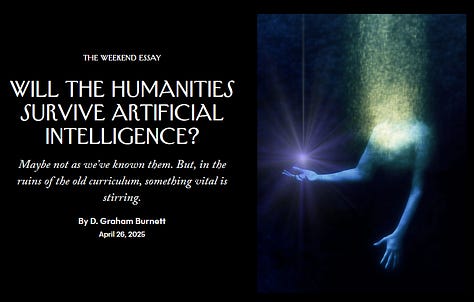
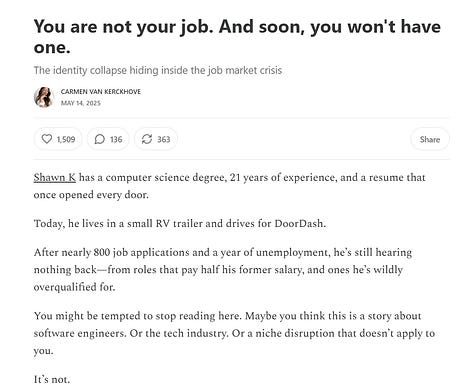
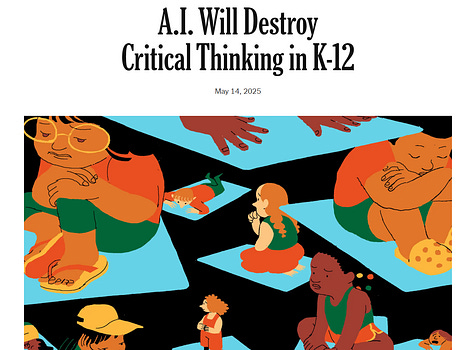
What are you really trying to say, oh AI CEO?
These letters give me a lot of feelings. I get what is going on—these CEOs believe that AI is a major competitive advantage, and they don’t want their companies to be left behind when some AI-first competitor appears and leapfrogs them.
AI is new enough that there aren’t many established patterns to incorporate it into your workflow, so the only way to scale it is to declare it mandatory, and hopefully you’ll reap the benefits. Given these assumptions, these letters make sense. There’s credible research showing that AI does help with some jobs—making them faster, more productive, and more efficient. So these letters aren’t completely off base, on a cold, hard capitalism level.
But there’s something about them that tastes a little sour to me.
There’s the “this is mandatory / we don’t know exactly how” dissonance.
The anxious tone of “you’re already behind.”
The passive-aggressive “there’s no future here for you if you don’t catch up.”
It’s all a little business-yuck to me, but there’s something more. In these manifestos, a couple things are unsaid but clear as day:
Humanity, with all its mess and nuance, holds no inherent value.
Want to hire a person with a life and a story and a desire for a job? Have you considered using a computer program instead? Want to bring on a delightful coworker? Why are you seeking delight? Could a machine do a significantly worse job, while costing your CEO much less money?You are only as valuable as your output.
These letters all mention increases in employee output because of AI automation. How that output is measured, and if that output actually translates into business value is unclear. But that doesn’t matter! If you’re not multiplying your output by 10x using AI, you’re not long for this team.
Reading these letters can be pretty scary. Every job optimized away or replaced by an AI agent represents a person who probably relied on that income to live. A company replacing customer service agents, copywriters, or junior engineers with AI represents not just jobs, but potentially entire career paths evaporating in front of people who have been working at them for years. These letters are written for the “survivors” of efficiency gains, but pretty sure there’s no second thoughtful letter written to every contractor who just got a notice of non-renewal from Duolingo because “we’ll gradually stop using contractors to do work that AI can handle.” Or rather, there is a letter, and it’s a termination notice.
Be unoptimizable, at least in your free time
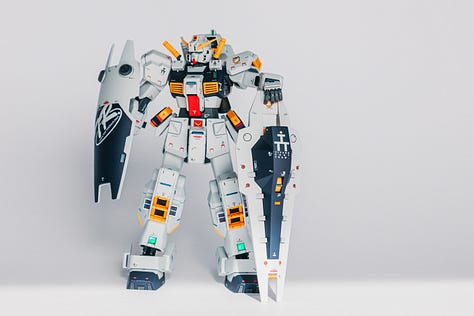
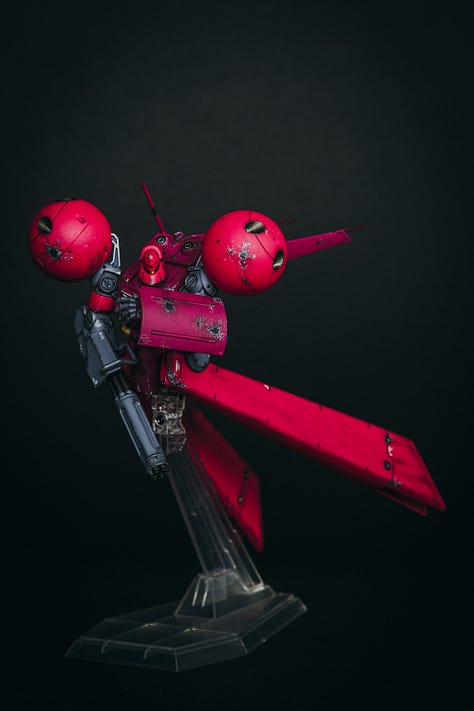



“But Ben,” you might say, “Practice is a tech company. Don’t you use AI?”
We do! We’re not anti-AI. We encourage exploration and experimentation. But we also haven’t issued vague ultimatums about your future if you don’t become an AI superuser and mind meld with a GPT.
Practice is a tech company, but our value isn’t rooted in tech. If Practice users are spending more time in our app than at their craft table, we’ve failed. Our whole premise is built on the very human act of creative making, and the importance of the human emotions and experiences that our innate creativity can lead us to.
When we first started talking about Practice, Erica found this quote on the internet, and while the attribution may be a Tumblr tween, it speaks to something fundamental about what we’re trying to do.
People with hobbies are constantly nudged to optimize them. You knit? You should sell patterns. You paint? Have you shown in a gallery? You build miniatures? Do you have an Etsy shop?
There’s something about this thought process that echoes these CEO letters to me—the idea that our worth is directly tied to our output, and how much we’ve optimized it to build value.
Reflected against these letters, Practice is the antidote to AI-fueled output obsession. What we ask our users to bring is their humanity, and not much else. There’s nothing to optimize, unless you want to get better at your craft, in which case we can connect you with an expert, or guide you in new techniques. Practicing a creative hobby is an intrinsically human activity. The work is the point.
I love the Gundam models I build, but once I finish one, I put it on a shelf. They are fun to revisit, but the real benefit of each tiny robot was the peaceful hours I spent putting it together, painting it, and getting every detail right. Imagine an AI that could build Gundam models at 10x the speed that I could: It wouldn’t need to schedule around taking kids to Softball practice, wouldn’t need to sleep, and I’m sure it could build some great models. If I was in the business of selling models, the AI would be an existential threat to me—but the whole point is the building; slow, careful, and full of enjoyment.
Practice is a space that is designed to help anyone looking for some peace in all the chaos find the hobby, the time, and the support that they need to find the same joy that Erica and I have come to recognize. Practice will always be centered on the delightfully human habit of making something, just for the sake of making it. When other CEOs start writing, we want to be a haven from the feeling of being optimized away, losing a hopeless battle against AIs and the bottom line. We exist because you are a human and we believe that creative making is essential self care—especially today.
Thanks for reading,
Ben





